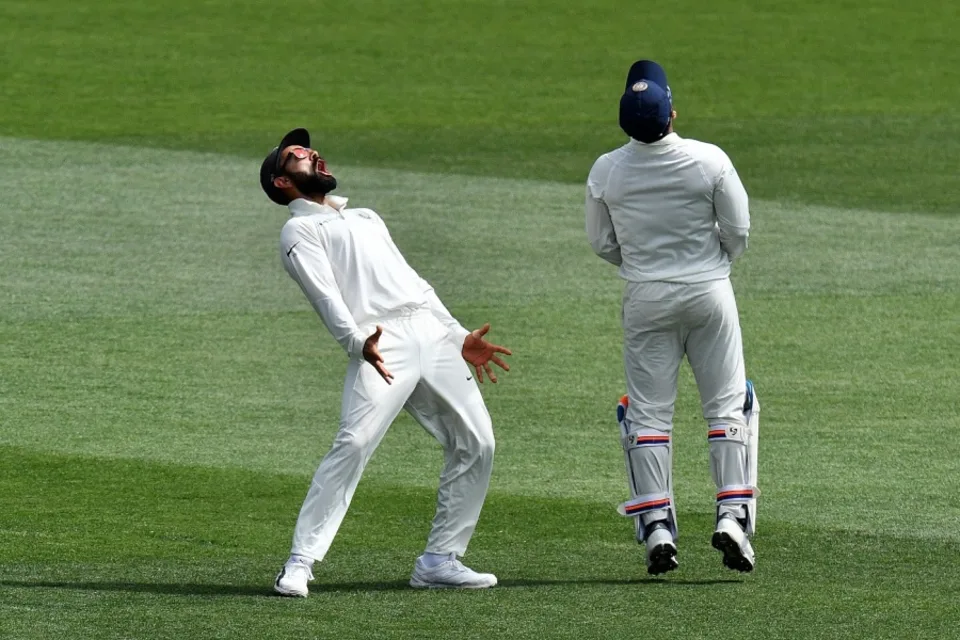
Virat Kohli and Tests- A match in heaven as the longest format of the game has suddenly got quieter than before.
Virat Kohli and Tests were made for each other.
A tremendous era marked by grit, fire, and audacity has come to an end with Virat Kohli’s retirement from Test cricket. It brings an end to the story of the most influential person in Indian cricket since Sachin Tendulkar; in fact, it’s possible that Kohli surpasses him in terms of his psychological and cultural effects on the country’s cricketing identity.
For more than ten years, Indian cricket’s flaming star, Virat Kohli, did more than merely score runs. He rewrote expectations, questioned norms, and represented the confident, unrepentant India of the twenty-first century. There has never been someone just like him, so his departure not only creates a statistical vacuum but also a seismic shift in energy.
In the past, Indian cricket, especially when played abroad, exuded a sense of deferential submission; players played with technical proficiency, of course, but frequently with psychological inferiority. That gradually altered. Indian cricket had a fresh lease on life thanks to Sourav Ganguly. MS Dhoni provided white-ball domination and icy leadership. However, Kohli? The fire was started by Kohli. He destroyed the original script and wrote a new one in which India was predicted to win rather than just be competitive overseas.
He was a fierce warrior in whites who never gave an inch and was always seeking more. He was the most Australian non-Australian cricket player we have ever seen. Not only of his opponents, his fielders, or his bowlers, but most importantly, of himself.
The two Test series that most capture Kohli’s legacy—and, in fact, his personality—took place in the most traditional settings of cricket excellence, Australia and England.
England revealed a stark weakness in 2014. Anderson’s late swing tormented him, and Kohli’s strategy and attitude collapsed. However, Kohli saw failure as a fertiliser. He didn’t voice any complaints. He made a new one. He looked for Lalchand Rajput, his Under-19 coach, and worked tirelessly to fix any technical issues. Tendulkar also offered guidance. Four years later, a better man—not just a better batter—rose to prominence.
Australia in 2018–19 was a coronation, if England was a redemption. In Australia, India has never prevailed in a Test series. The team that Kohli, who is now captain, guided had faith in its ability to succeed. Despite the fact that Cheteshwar Pujara was statistically superior, Kohli’s 123 in Perth on a treacherous wicket was an unforgettable innings. It was the epitome of Test cricket: grit, discipline, battle, and elegance. Decades of inferiority were forgotten when India won 2-1.
No Indian captain had ever led a team to such overwhelming dominance abroad. And since Tendulkar had so clearly dominated on every continent, there was no batter.
In addition to his impressive record—more than 9,000 runs, 30 hundreds, and historic victories abroad—Kohli leaves behind a guide on how to play the game with passion, heart, and unwavering pride as he leaves the Test arena.
Yes, he was divisive. However, every revolutionary is.
He always played too hard, spoke too loudly, and walked with a swagger. By doing this, he rose to prominence in India, a country that no longer settles for supporting parts. As a subcontinental cricketing giant who strode over Lord’s, Adelaide, Centurion, and Kolkata with the same unwavering heartbeat, he was a lighthouse to Indians everywhere.
All hail the King. And thank you, Virat, for making us believe that domination and dignity could walk together.

